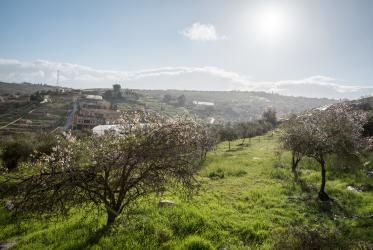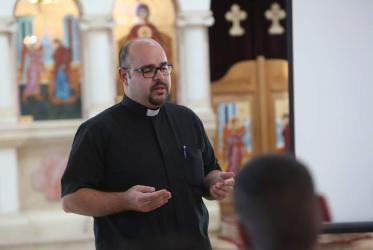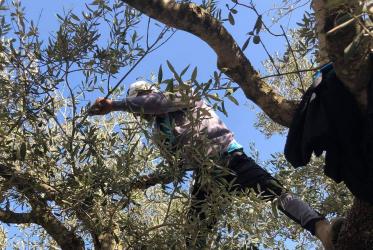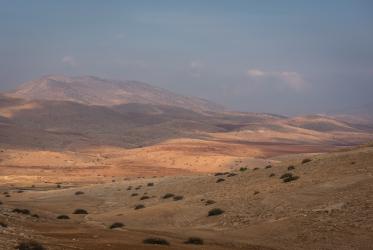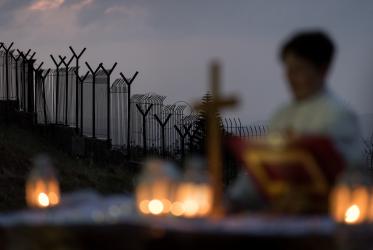Mostrando 101 - 120 de 209
04 Diciembre 2020
WCC to convene webinar on ’Uprooting Identities or Planting Just Peace?’
27 Noviembre 2020
On World Olive Tree Day, planting is an act of love
26 Noviembre 2020
Fr Jamal Khader: “We need to keep hope alive” in Palestine
25 Noviembre 2020
Rev. Jamil Khadir: “Without faith, there is no real hope” in Palestine
23 Noviembre 2020
In Palestine, “God honored this olive tree”
12 Noviembre 2020
“Your life is in peace when you collect the olives"
29 Octubre 2020
“Olive trees are holy signs of peace, older than anyone”
22 Octubre 2020
“Stand together praying for just peace in Palestine and Israel”
14 Septiembre 2020
WCC reiterates standpoints against antisemitism
20 Enero 2020
El CMI reitera su rechazo al antisemitismo
20 Enero 2020
World Week for Peace highlights humanity and equality
15 Septiembre 2019
La Semana Mundial por la Paz destaca la humanidad y la igualdad
15 Septiembre 2019
Dr Saïd Ailabouni: God is on the side of rejected, oppressed, occupied
12 Septiembre 2019

